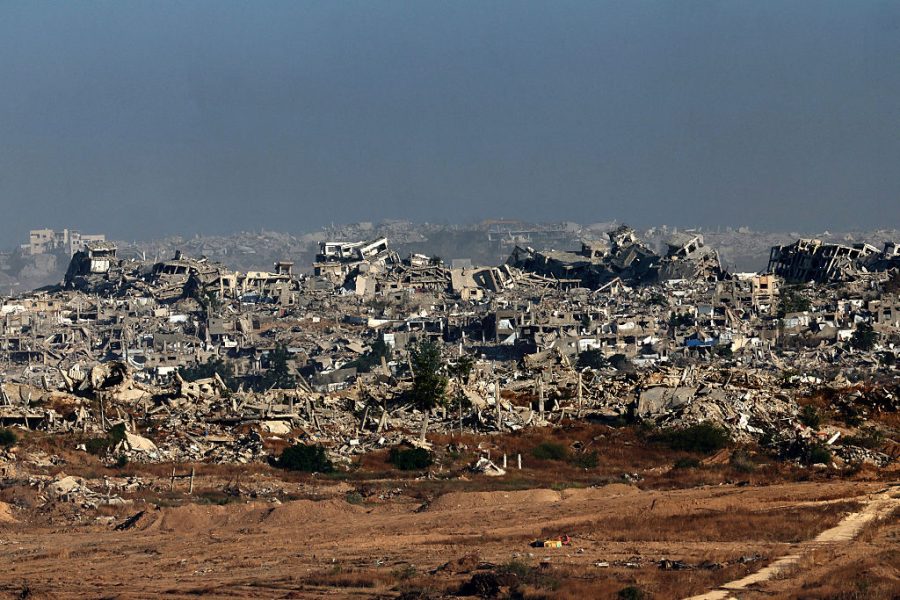In recent months, the train track that was bustling during my small Pennsylvania town’s heyday has been back in use, hauling coal to ports that ship it overseas. The train blares its whistle around 7 a.m., waking our sleepy town with a bygone sound of enterprise. The whistle blows again around 5 p.m., and people rush to watch the train chug on through. Real train buffs, with expensive cameras in tow, line the tracks at dawn. It’s novel, old-timey, and thrilling. But otherwise most of us never think about trains.
Most Americans, for that matter, never think about trains. The East Palestine, Ohio train derailment has thrust the railroad system into the public mindset, and though rail company Norfolk Southern must answer for its unconscionable negligence and the devastation caused in its wake (not to mention our government’s ineptitude), it’s worth taking the time to appreciate how our remarkable our railway system really is.
I know a man, Randy, who works for the railroad in the next town over. I asked him what he wishes people knew. He said, “That there is a railroad in [the next town over]. A pretty big one, too.”
When I asked a spokesman for the Association of American Railroads (AAR) the same thing, he told me, “The things many people may not know are railroads are privately owned and operated. They are not utilities, nor are they nationalized like the USPS or Amtrak. And they are not a monolith — there are seven ‘Class I’ railroads — i.e., the largest ones — and hundreds of smaller railroads called short lines.”
Trains, Randy told me, are America’s behind-the-scenes worker bees, transporting 40 percent of the nation’s freight (as measured by tonnage) over a 140,000-mile rail network. They play a huge, underappreciated role in the economy and in providing us the first-world comforts we enjoy.
“I think most people just think trains are annoying,” Randy said. “They hear the horns, they stop at crossings. Really the only thing they hear is the stuff on the news, when something bad happens. We really do haul stuff that people use every day. You get all these imports from China coming into the West Coast. The railroads haul that stuff the whole way across the country.
“If we weren’t there,” Randy continued, “it would be thousands and thousands of trucks. I guess people don’t realize without us, their highways would be in a lot worse condition than they are. It would increase truck traffic, fuel consumption, pollution. Every carload of freight takes between three and four trucks off the highway.”
The media, in typically unhelpful fashion, is casting arbitrary blame and releasing shot-in-the-dark reports about what may have happened in East Palestine. A USA Today writer wrote this week that “trains are becoming less safe,” only to publish another article that same day about how railway incidents are “rare.” The first story implied that the derailment’s impact would have been lessened had Norfolk Southern not “fought against a new US Department of Transportation safety rule.”
Yet it’s obviously in the interest of railroad companies to operate safely. Not only do derailments mean lost time and revenue, but also potential tragedy, a PR nightmare, and, as Norfolk Southern is finding out, a bevy of lawsuits. It turns out the reason most people don’t think about trains very often is because railroad companies generally mind their own business, operate safely, and stay out of the news.
According to AAR, “The American Society of Civil Engineers gave rail its highest grade in their infrastructure report card in part because of the annual $20 billion in private investments in maintaining and improving network. At its core, a well-maintained railroad is a safe one, and thanks in part to those investments, rail remains the safest way to move HAZMAT overland; 99.9 percent of all HAZMAT shipments reach their destination without incident. Since 2012, the hazmat accident rate has declined by 55 percent.”
Randy told me there are people whose sole job is to inspect rail cars. Most railroads also have dispatching centers that operate much like an airport’s air traffic control center. There are safeguards in place on the railroads, such as wayside hot-box detectors, which, freightwaves.com informs us, “use infrared sensors to detect bearings, axles or other components of a rail car that are overheating, then use radio signals to flag rail crews of any overheated components.” A National Transportation Safety Board report found the rail car that derailed in Palestine had an overheated wheel bearing. A rail union is questioning whether the hot-box detector had been properly maintained.
Since almost all railroads outside of Amtrak are privately owned and operated, companies are responsible for maintaining and repairing their own lines. In Pennsylvania, grants are available to assist in the repairing and upgrading of tracks, as it would seem to be in the state’s interest to encourage rail use to save on infrastructure costs. AAR informed me, “Railroads invest $20 billion annually to maintain and improve infrastructure and assets to prevent accidents before they happen.”
“With our little railroad, we spend several million dollars every year to repair tracks,” said Randy. “And most railroads, ours included, have companies come and X-ray the rails a couple times a year, looking for breaks and problems you can’t pick up with your own eyes, trying to prevent derailments.”
The next time you’re scared out of your skin by the scream of a train whistle, or muttering impatiently while waiting at a railroad crossing, think of the goodies the train is transporting to a Tractor Supply near you and about the millions of tractor-trailers full of HAZMAT that aren’t driving through your town — and chill.

























